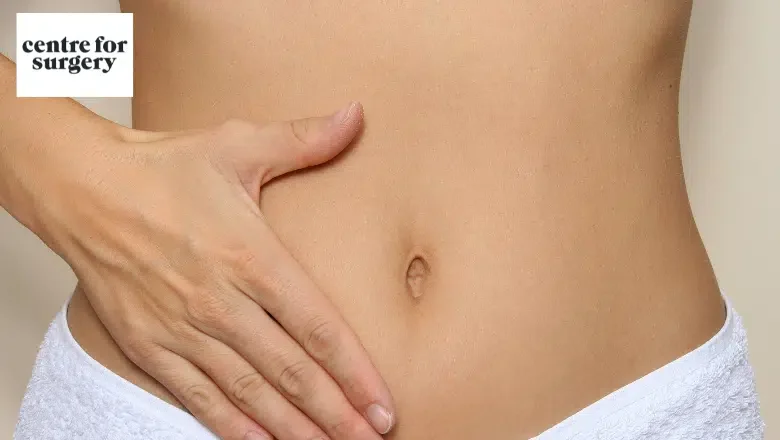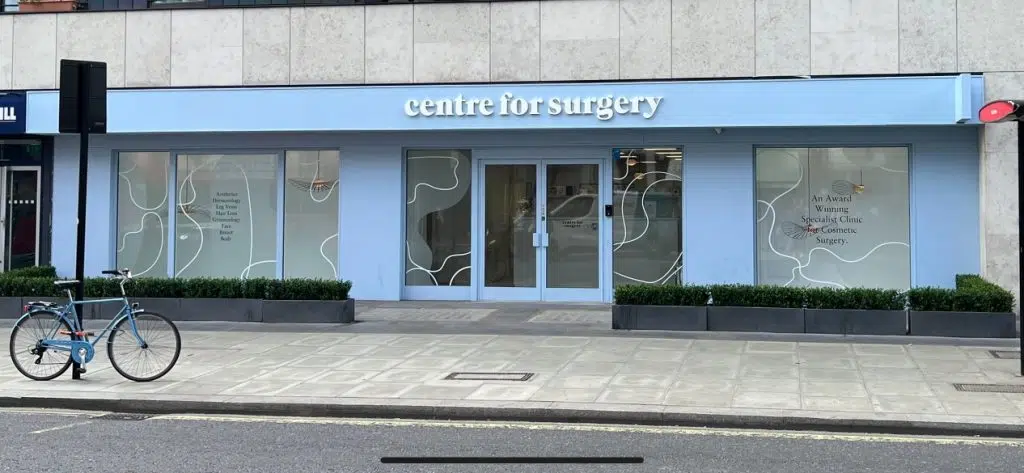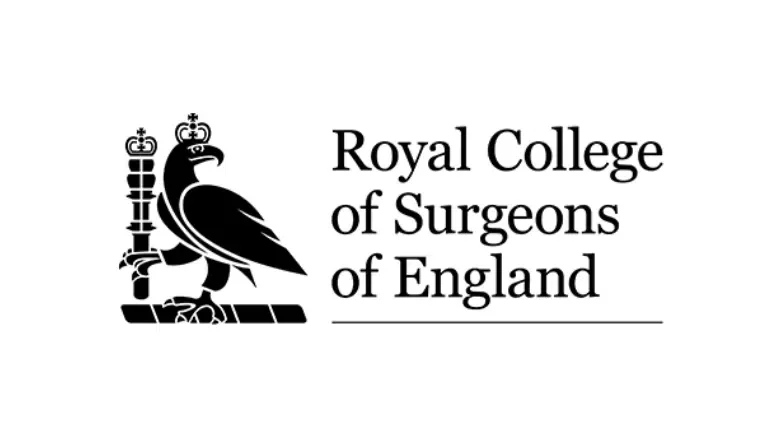Tummy Tuck and Weight Loss
Tummy tuck or abdominoplasty surgery can truly transform patients’ lives and is one of the most effective methods to improve the appearance of the midsection. The surgery involves the removal of excess skin and fat to restore the appearance of the abdomen ,leading to a smoother-looking, firmer, and more youthful body shape. The ability of a tummy tuck to transform your body cannot be underestimated.
RELATED: What does a tummy tuck involve?
We are commonly asked whether a tummy tuck is suitable for weight loss. Here at Centre for Surgery, our surgeons recommend that you view a tummy tuck as a procedure for improving the shape of your body and not as a method of losing weight. Having a surgical procedure should not be viewed as a replacement for eating a sensible diet and exercising regularly. Many patients often find that despite eating well and exercising plenty, they are unable to achieve the results they are looking for. In these cases, a tummy tuck could be a highly effective treatment that may provide some degree of weight loss as a secondary benefit.
RELATED: Tummy Tuck FAQs – Q&A about Abdominoplasty Surgery
Exploring the Goals of Abdominoplasty: Beyond Weight Loss
Abdominoplasty is often misunderstood as a procedure aimed at weight loss. This misconception overlooks the procedure’s core purpose: to sculpt and refine the body’s contours for a more aesthetically pleasing abdominal area. The essence of a tummy tuck lies in its ability to reshape the abdomen, offering a smoother and firmer appearance, rather than facilitating significant weight reduction.
The procedure is designed to address several key areas of concern within the abdominal region. Firstly, it effectively removes excess skin. This is particularly beneficial for individuals who have undergone dramatic weight loss or childbirth and are left with loose skin that no amount of exercise seems to eliminate. The outcome is a smoother and more toned abdominal profile.
Moreover, abdominoplasty targets the abdominal muscles, which may become overstretched or separated over time. While exercise is beneficial for overall health, it may not always succeed in tightening these muscles to achieve a desired toned appearance. Through a tummy tuck, these muscles are tightened, contributing to a flatter and more defined abdomen.
RELATED: Tummy Tuck with Muscle Repair
Another significant benefit includes the reduction of stretch marks, especially those located on the lower abdomen. These marks, often a source of self-consciousness, can be minimised, allowing for increased confidence in one’s appearance.
The procedure goes beyond mere skin tightening and muscle repair; it transforms the entire midsection. By removing excess skin and fat and tightening the underlying muscles, a tummy tuck can significantly enhance the body’s natural contours. This not only results in a flatter abdomen but also contributes to a more sculpted and defined waistline.
An unexpected advantage of abdominoplasty is the potential improvement in posture. The tightening of abdominal muscles during the procedure can provide better support for the spine, encouraging a more upright and confident stance.
While some individuals may experience a slight reduction in weight following the procedure due to the removal of skin and fat, it is important to understand that a tummy tuck is not a weight loss solution. Instead, it is a contouring surgery designed to enhance the overall shape and tone of the abdomen, providing both aesthetic and functional benefits.
RELATED: Medical Benefits of a Tummy Tuck
Differences Between a Tummy Tuck and Liposuction
Tummy tucks and liposuction are distinct procedures that can be used individually or in combination to enhance body contouring. Liposuction is a quick and safe surgical procedure designed to remove stubborn or unwanted fat deposits, resulting in a more sculpted body appearance.
RELATED: Liposuction vs Tummy Tuck For a Flatter Stomach
During liposuction, fat cells are liquefied using a speciality. designed vibrating handpiece called MicroAire, and a cannula is inserted to extract the liquid. Patients who are at a healthy weight, have elastic skin, and possess firm abdominal muscles are ideal candidates for liposuction. Although liposuction is highly effective at eliminating fat deposits from the abdomen, it does not address issues with the abdominal muscles or skin.
RELATED: Loose Skin after Liposuction – Top Tips for Prevention and Treatment
In contrast, a tummy tuck, also known as abdominoplasty, focuses on tightening the abdominal muscles and removing excess, sagging skin. This procedure is a popular option for individuals who have experienced significant weight loss and are now dealing with excess skin. Even minor weight loss in older people can result in excess skin around the abdomen. Women who have been through pregnancy and C-sections, which often lead to extra skin and weakened abdominal muscles, are common candidates for tummy tuck surgery. Stretch marks may also improve following a tummy tuck, as they are often removed along with the excess skin.
RELATED: Tummy Tuck after C-Section for a Flat and Toned Stomach
A tummy tuck primarily targets excess skin and lax muscles; it does not address additional fat and is not intended for substantial weight loss. However, an abdominoplasty can be combined with liposuction to remove excess fat. This is known as a Brazilian abdominoplasty.
While liposuction and abdominoplasty are popular cosmetic procedures for women, men can also benefit from male abdominoplasty. Your surgeon will be able to discuss with you whether you are a suitable candidate for one or both treatments.
SEE ALSO: What is the difference between liposuction and a tummy tuck?
How does weight loss occur after a tummy tuck?
Potential weight loss occurs during the abdominoplasty procedure itself, resulting from the surgical removal of excess skin and fat. The removal of this extra tissue is permanent and does not come back. This should therefore be viewed as one of the long-term results of a tummy tuck that will help you to feel much better about yourself. A tummy tuck in itself should not be viewed as a primary method of losing weight. If you view losing weight as the main reason for seeking a tummy tuck, your surgeon may decide not to carry out the procedure.
RELATED: Can I combine liposuction with a tummy tuck?
The ideal patients for tummy tucks are those who have maintained a healthy diet and exercised regularly over a long period of time, with no success in improving the appearance of the middle section. Other patients may be near achieving their body goals and need that one final push, which a healthy lifestyle alone cannot achieve, as these are not effective treatments for removing loose skin. Many people will have already lost significant weight before having a tummy tuck. A tummy tuck procedure becomes a highly effective way to sculpt the body as the surgeon removes loose and sagging skin after successful weight loss. We would generally recommend adopting healthy lifestyle habits and achieving some gains with this, however minimal, before embarking on an abdominoplasty procedure.
SEE ALSO: 5 Tummy Tuck Myths
How much weight is usually lost with a tummy tuck?
A tummy tuck, also known as abdominoplasty, typically results in a weight loss of 1.4 to 2.3 kg (3 to 5 pounds). If you opt for a mini tuck, commonly referred to as an apronectomy, you can expect to shed approximately 0.8kg (1.8 pounds) of surplus skin and fat. In the case of an extended tuck, which is a more comprehensive abdominoplasty, the expected weight loss from excess skin and fat is approximately 2.3 kg (5 pounds).
It is essential to note that the weight loss experienced after a tummy tuck differs from that achieved through exercise or dieting, as it primarily involves the removal of excess skin and fat.
How can a tummy tuck help with weight loss?
We recommend that patients view a tummy tuck as a supplementary procedure to achieving overall improved health and potential for weight loss. Eating healthily and exercising regularly both before and after the procedure will help maintain your tummy tuck results, preventing weight gain after surgery. Patients who continue to eat unhealthily before and after the procedure will often notice sub-optimal results.
Many patients who have undergone a tummy tuck with us at Centre for Surgery often report achieving long-term weight loss, as they frequently find that their appetite has decreased after the procedure. We conducted a recent survey of over 100 patients who had undergone tummy tuck surgery and found that patients reported feeling full after eating their meals and throughout the rest of the day, compared to before the procedure. We believe that without feeling the constant need to eat, losing weight becomes a much easier process.
Other scientific studies have suggested that hormonal factors could be linked to weight loss after tummy tuck surgery. Part of the surgery involves removing fat cells with liposuction, and it has been postulated that levels of certain hormones responsible for causing hunger are also removed at the same time. These hormones may play a role in increasing appetite and the frequency of hunger pangs. Patients may feel less of a need to eat when the levels of these hormones are lower.
The ability to lose weight after tummy tuck surgery may also be related to a patient’s body mass index before the procedure. Patients with a BMI just below 25 may have a greater chance of maintaining weight loss after undergoing a tummy tuck. Many patients may have had bariatric surgery, such as a gastric bypass or a gastric sleeve, to reduce significant amounts of weight, which may have been causing them health problems. If your BMI is over 40, your surgeon may recommend weight loss surgery as a prerequisite for undergoing a tummy tuck. The complications of tummy tuck surgery increase significantly when the body mass index is over 35.
The key to tummy tuck surgery is to enter the procedure with healthy lifestyle habits that you can maintain after the procedure. If you are able to do this, the ability to lose weight after the surgery may be significantly greater than if you had not had a tummy tuck.
Will I need a tummy tuck after weight loss?
After reaching your weight loss goal, you may be dissatisfied with the loose or sagging skin on your abdomen, which, unfortunately, cannot be addressed solely through diet and exercise. In such cases, a tummy tuck can effectively contour the body and enhance its shape. However, it is important to understand that a tummy tuck is not a substitute for weight loss. Before considering a tummy tuck, you must be close to your desired weight.
Maintaining a stable weight is essential before undergoing a tummy tuck, as significant weight fluctuations after the procedure can negatively impact the results.
Will I need a tummy tuck after liposuction?
The need for a tummy tuck after liposuction depends on your circumstances and aesthetic goals. Patients with localised areas of stubborn fat and relatively elastic skin may benefit from liposuction alone, while those with loose abdominal skin after significant weight loss or pregnancy might benefit more from a tummy tuck. For some patients, a combination of liposuction and tummy tuck, often referred to as a Brazilian tummy tuck, could be the most suitable approach to address their specific concerns and achieve the desired results.
Patients with moderate to severe skin laxity and persistent fat deposits, for example, may benefit from liposuction to remove the fat cells, followed by a tummy tuck to eliminate the remaining excess skin. After weight loss, patients may also experience a considerable amount of loose skin and stubborn fat pockets that do not respond as effectively or uniformly to diet and exercise as the rest of their body. In such cases, both procedures can be combined to address these concerns.
RELATED: What to expect after a tummy tuck?
Is a tummy tuck permanent?
Tummy tuck results are generally considered permanent, and patients can expect to see visible improvements immediately after surgery, with a noticeable enhancement in body shape and a flatter, more toned stomach. The results will continue to improve over the first few months. Patients who previously had significant amounts of loose skin can now look forward to wearing fitted items of clothing, which will help them feel better about themselves.
The long-term results of a tummy tuck will depend on several factors, including how well you can maintain a stable weight over time. If patients return to eating unhealthy foods before they have undertaken successful weight loss, they may find that any excess weight returns relatively quickly. Patients who have a tummy tuck before completing the family may also notice that their tummy tuck results are adversely affected. We would recommend completing your family before considering having a tummy tuck procedure.
How long does a tummy tuck last?
The outcomes of a tummy tuck are generally considered permanent, as the skin and fat cells removed during the procedure do not regrow. Likewise, internal sutures used to repair the abdominal muscles are designed to be long-lasting.
However, substantial weight fluctuations can impact the longevity of tummy tuck results. If you gain a significant amount of weight, the remaining abdominal skin may lose its elasticity and start to sag again. Additionally, substantial weight gain can cause the body to create new fat cells in the treated area as well as other regions, altering the body’s contours.
To maintain the results of your tummy tuck, it is essential to adopt a healthy lifestyle, which includes regular exercise, a balanced diet, and stable weight management. Pregnancy after a tummy tuck can also affect the results, so it is advisable to discuss your plans for future pregnancies with your surgeon before undergoing the procedure.
How to maintain your tummy tuck results
By maintaining a stable weight over the long term, you can look forward to enjoying the incredible results of a tummy tuck for many years. Many patients who have successfully lost weight before undergoing a tummy tuck often view the tummy tuck procedure as the second part of their successful journey to achieving a significantly improved body silhouette. We congratulate patients who have persisted and shown great willpower in losing weight. You can now look forward to perfecting your parents with one of the most effective cosmetic surgery procedures available in the UK. By removing excess skin and fat, your self-confidence and emotional well-being will be significantly boosted.
SEE ALSO: Tummy Tuck (Abdominoplasty) Before And After Photos
The best way to make sure your tummy tuck results last is to follow all of your surgeon’s post-operative instructions in full. This will help ensure a smooth healing process after surgery with minimal risk of complications. You should continue to eat healthily, including plenty of nuts, seeds, whole grains, vegetables, and avocados. Maintaining a healthy weight will help prevent any tightened skin from stretching significantly.
Will I need a revision tummy tuck?
The necessity of tummy tuck revision depends on several factors and individual circumstances. Patients may seek a tummy tuck revision surgery for various reasons, such as postoperative weight gain or loss, pregnancy after the initial procedure, poor healing, or dissatisfaction with the final outcome. However, maintaining a healthy lifestyle through regular exercise, a balanced diet, and stable weight management generally reduces the likelihood of needing a revision for your tummy tuck.
RELATED: What Are the Signs of a Bad Tummy Tuck Procedure?
FAQs
How Much Weight Can I Lose From Tummy Tuck Surgery?
If you’re contemplating a tummy tuck, either following significant weight loss or post-pregnancy, to regain your abdominal contour, you may find that up to 2 kilograms of excess skin could be removed during the surgery. While some individuals have reported a more substantial weight reduction of around 14 kilograms, it’s essential to understand that not everyone experiences notable weight loss from this procedure. The primary aim of a tummy tuck is to restore the stomach’s shape rather than to serve as a weight loss solution.
Will Undergoing a Tummy Tuck Reduce My Waist Size?
Absolutely, a tummy tuck can indeed lead to a reduction in waist size by eliminating surplus fat and skin from the area. It’s important to note, however, that this surgery specifically targets the removal of subcutaneous fat located just under the skin. Through full abdominoplasty, many patients find that they drop several clothing sizes and notice a significant decrease in inches around their midsection, although significant weight loss is not a typical outcome.
RELATED: How to Get a Smaller Waist
Will I Have a Scar After a Tummy Tuck?
After a tummy tuck, you will have a scar situated below the bikini line, initially appearing as a smooth, pale pink linear incision. This scar undergoes various changes throughout the healing process, which lasts about a year. Around two to three months after your surgery, the scar may become reddened and slightly raised due to the natural formation of collagen within the scar tissue. There are numerous topical and non-surgical treatments available to effectively manage and reduce the visibility of these scars over time.
RELATED: What kind of tummy tuck scars should I expect?
How Much Weight Can You Lose in a Month?
Pre-surgical rapid weight loss can be achieved through specific diet plans, such as the Very Low-Calorie Diet (VLCD) or the Low-Calorie Diet (LCD), which aim to prepare your body for surgery. The rate of weight loss with these plans can vary, with the VLCD potentially leading to a weekly loss of 1.5 to 2 kilograms over several weeks, translating to approximately 6 to 8 kilograms per month. It’s crucial to note, however, that VLCD is generally not recommended for periods exceeding 12 weeks.
Is There a Weight Restriction for Undergoing Anaesthesia?
Anaesthesia, which is essential for ensuring patient comfort during surgery, can present particular challenges in obese patients. While general anaesthesia is commonly used and carries a relatively low risk, the presence of excessive body fat can complicate both the administration of anaesthetics and the surgical procedure itself. Issues may arise in determining the appropriate anaesthetic dosage, locating veins for intravenous administration, managing the administration of anaesthetics through excess fatty tissue, and inserting the breathing tube. Patients with a Body Mass Index (BMI) over 30 are at a higher risk of complications related to both surgery and anaesthesia. It is advisable for such patients to lose weight before surgery or to adhere to a pre-surgery diet plan.
Can You Have Surgery if You Are Overweight?
While bariatric surgery and liposuction are available options, it is generally recommended that patients lose a modest amount of weight (5-10% of their total body weight) before undergoing other types of surgical procedures. This approach helps minimise surgical risks and can enhance the longevity and effectiveness of the surgical results. The ideal BMI for patients considering plastic or cosmetic surgery is close to 30. However, surgeries can be safely performed on patients with a BMI of up to 35, provided they are medically fit.
Thinking about getting a Tummy Tuck in London?
A tummy tuck, also known as abdominoplasty, is an excellent solution for eliminating excess weight and sagging skin in the abdominal area. The procedure can be combined with liposuction for those seeking additional fat removal. The surgery typically takes two to three hours to complete under general anaesthesia. To minimise visible scarring, an incision is made along the underwear line. The abdominal skin is then lifted, allowing the surgeon to tighten (and repair, if necessary) the underlying weakened muscles. After the skin is repositioned over the abdominal wall and any excess skin is removed, it is sutured back to the original incision line with increased tension.
Your surgeon will discuss the different tummy tuck options (Full, Mini, and Extended) with you and help you choose the procedure that best suits your needs. You will also discuss potential risks and complications, as well as what to expect during the recovery process. If your surgeon determines that you are a suitable candidate for the surgery, you will have the opportunity to decide whether you wish to proceed. You are welcome to return to the clinic as often as needed during this time to discuss your upcoming procedure(s) with your surgeon.
At our clinic, tummy tucks are performed regularly, and our surgeons are renowned experts in body contouring surgery. If you are considering any of the mentioned procedures, contact us today at 0207 993 4849 to schedule a consultation with an experienced surgeon at our conveniently located clinic.
RELATED: How much does a tummy tuck cost?














